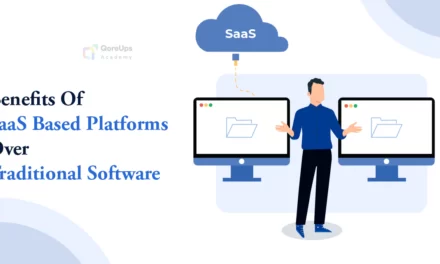In today’s fast-paced and dynamic world, traditional ownership models are giving way to a new paradigm of shared consumption and resource optimization.
The rise of the rental marketplace business has emerged as a transformative force, connecting individuals and businesses in a mutually beneficial exchange of goods and services.
From cars and homes to Clothes and equipment, rental marketplaces have revolutionized the way we access and utilize a wide range of assets.
In this blog post, we will delve into the fascinating world of rental marketplaces and explore what makes them such a compelling and innovative business model.
In the rental business, the company or individual possesses an asset or inventory that is rented to customers for a fixed or daily charge.
This business model is advantageous because the company or individual does not have to frequently restock its inventory, and it is usually more cost-effective for consumers to acquire the items they require.
Ways To Start A Rental Business
Starting a rental business can be an exciting and profitable venture. Whether you choose to operate online or offline, a rental marketplace business allows you to offer products or services to customers for a specific duration in exchange for a fee.
It provides a cost-effective alternative to owning and maintaining items that are used infrequently or for a limited period.
Online Rental Business
Starting an online rental business involves leveraging the power of the internet to reach a broader audience and offer convenient rental services.
By creating a user-friendly website or utilizing a rental platform, you can showcase your rental inventory and allow customers to browse, book, and manage rentals online.
Online rental businesses offer the advantage of scalability, as they can reach customers beyond geographical limitations and operate 24/7.
With effective online marketing strategies, you can attract customers, streamline operations, and provide a seamless rental experience.
Offline Rental Business
Starting an offline rental marketplace business involves establishing a physical location where customers can visit to rent your products or services.
This could include setting up a storefront, showroom, or rental office. Offline rental businesses often cater to local customers and rely on in-person interactions.
They may require the physical presence of staff to handle rental inquiries, transactions, and inventory management.
An offline rental business offers the advantage of personal touch and face-to-face customer service, allowing you to build strong relationships and provide immediate assistance to customers.

Why Online Rental Business Is The Best
An online rental marketplace business is often considered the best choice for entrepreneurs due to several advantages. It offers a wide reach, allowing you to access a larger customer base beyond geographical limitations.
Customers can conveniently browse and book rentals from anywhere, saving time and effort.
Online operations have lower overhead costs compared to physical stores, allowing for more efficient resource allocation.
The customer experience is enhanced through user-friendly interfaces, online payment options, and personalized recommendations.
Automation and flexibility streamline operations, freeing up time for business growth and customer service.
An online rental business offers convenience, wider market reach, lower overhead costs, an enhanced customer experience, and the flexibility to automate processes.
These factors contribute to its appeal as the preferred choice for entrepreneurs looking to start a rental business in today’s digital age.

What Are The Types Of Rental Marketplaces?
Online rental businesses have gained significant popularity in recent years due to their convenience and cost-effective nature.
There are several types of online rental businesses catering to various industries and needs.
- Vacation Rental Business
- Car Rental Business
- Equipment Rental Business
- Fashion Rental Business
- Furniture Rental Business
- Bike Rental Business
- Textbook Rental Business
- Electronics Rental Business
- Party and Event Rental Business
- Boat and Yacht Rental Business
- Tool Rental Business
- Space Rental Business
- Art and Collectible Rental Business

How Rental Marketplace Makes Money
Rental marketplaces generate revenue through various business models and monetization strategies. Let’s see them in detail.
1. Transaction Fees
Rental marketplaces charge a percentage of each transaction between renters and owners. The profit comes from the commission taken from these bookings.
- Profit Potential: If a platform takes a 10% fee on each $100 rental transaction, it earns $10 per transaction. As volume increases, the profits grow exponentially, especially if the marketplace handles a large number of transactions.
2. Subscription Fees
Platforms charge regular subscription fees from either renters or owners for access to premium services.
- Profit Potential: A steady and reliable source of income is offered by subscription fees. For example, if 100 owners pay $30/month to list their items on the platform, the marketplace makes $3,000 monthly from subscriptions.
3. Listing Fees
Platforms charge owners a one-time or recurring fee to list their products or services.
- Profit Potential: A listing fee can be a one-time charge or a recurring fee. If the platform charges $20 per listing and 500 items are listed, it would make $10,000 in revenue.
4. Booking or Service Fees
Rental platforms charge additional booking or service fees on top of the rental price, which is paid by the renter.
- Profit Potential: If a marketplace charges a $5 service fee per booking and processes 1,000 bookings per month, the platform earns an extra $5,000 per month in profit.
5. Insurance Fees
Platforms offer insurance coverage to renters or owners for damage, loss, or theft of the rented item, earning a commission or handling the premium directly.
- Profit Potential: The marketplace earns a portion of the insurance fee. For example, if the insurance costs $10 per rental and 500 rentals opt-in for insurance, the platform earns $5,000 in additional revenue.
These five strategies are the core revenue models for most rental marketplaces, providing a mix of consistent income through transaction-based fees and supplemental income through optional services.

Is Investing In Rental Business Profitable?
Investing in a rental marketplace business has the potential to be highly profitable. Rental businesses offer several advantages that contribute to their profitability.
First and foremost, they generate recurring revenue through regular rental payments, providing a steady income stream.
Additionally, there is often high demand for rental products and services, especially for items that are expensive or infrequently used. This creates a continuous customer base and increases the likelihood of consistent bookings and revenue.
Furthermore, compared to businesses that sell products outright, rental businesses require lower capital investment.
Instead of purchasing a large inventory, you can start with a smaller selection of items that can be rented out multiple times, reducing upfront costs and increasing the potential for a faster return on investment.
Rental marketplace businesses also have the flexibility to adapt to market demands and trends. By adjusting your inventory and offerings based on customer preferences, you can stay relevant and attract a broader customer base, leading to increased profitability.
Moreover, rental businesses have the potential for scalability. As your business grows and establishes a reputation, you can expand your inventory, target new markets, and increase your rental capacity, creating opportunities for higher profits.
However, it’s important to note that the profitability of a rental marketplace business is not guaranteed.
Factors such as market competition, location, pricing strategies, effective marketing, and efficient operations all play a significant role in determining the success and profitability of the business.
Conducting thorough market research, developing a solid business plan, and implementing effective management strategies are crucial for maximizing profitability in the rental industry.
Conclusion
In summary, a rental marketplace business is a platform that connects individuals or businesses looking to rent out their assets with those in need of temporary or occasional use.
It offers an alternative to traditional ownership, allowing people to access a wide range of goods and services without the burden of ownership costs.
Rental marketplaces benefit consumers by providing convenient, cost-effective solutions and promoting sustainability through resource sharing and reduced waste.
For entrepreneurs, these platforms present opportunities to monetize idle resources and create their own rental businesses.
However, successful implementation requires careful planning, user-friendly platforms, and effective trust systems to ensure customer satisfaction and address potential challenges.
Overall, rental marketplaces are reshaping industries by fostering collaboration, resource efficiency, and accessibility. They empower individuals, support sustainable practices, and create economic opportunities.
As technology advances, we can expect rental marketplaces to continue evolving, providing even more innovative solutions to meet our changing needs.






